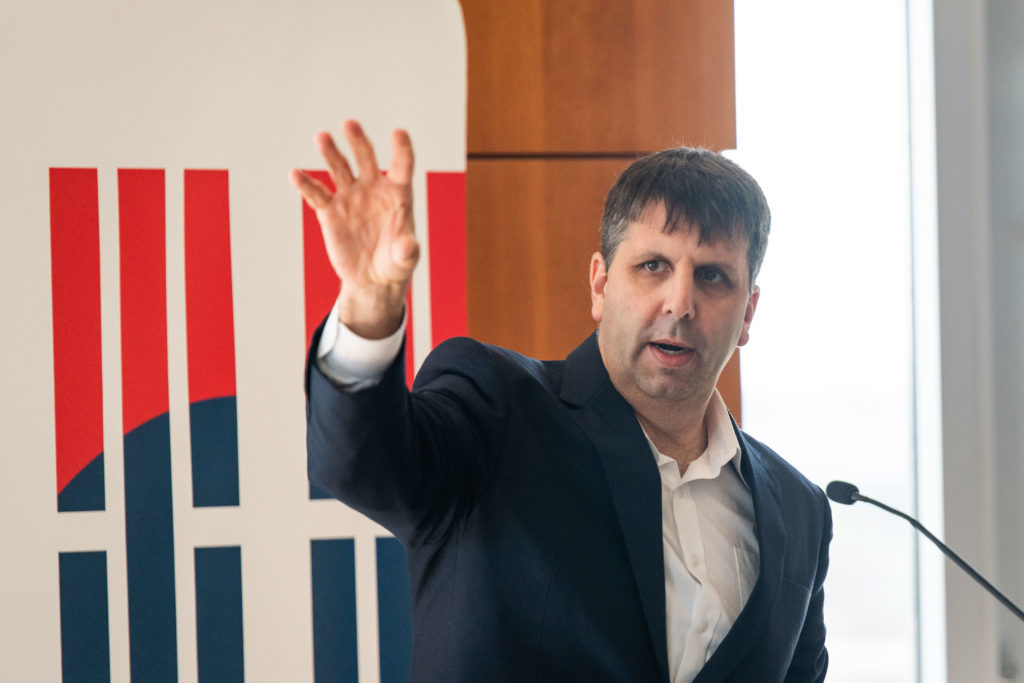A former U.S. ambassador to the Republic of Korea discussed the North Korean economy and U.S. diplomatic efforts at the Elliott School of International Affairs.
Mark Lippert, who held the post in Seoul, South Korea, from 2014 to 2017, spoke Friday at a conference hosted by the Institute of Korean Studies in partnership with a South Korean graduate school about the North Korean economy. Lippert discussed the difficulty of gathering information about the secluded country’s financial system and the impacts of international sanctions on the nation.
“If anybody tells you they know everything about the North Korean economy, don’t believe that person,” Lippert said. “This is a very opaque, difficult, analytical subject, and this is precisely why I have to come to GW and KDI School to have this conference on this often overlooked, understudied, but yet critically important topic.”
Lippert said North Korean officials lessen the effect of international sanctions on the country’s economy through the use of informal trading networks within the country and with China. He added that though the nation’s leaders have improved these belowground networks as a result of several decades of isolation from the international trading system, the economy may be shrinking.
“My position on the state of the overall North Korean economy is that it’s a very sick patient,” he said. “It’s grossly inefficient, it’s corrupt, and the Bank of Korea just said it’s negative growth,” Lippert said. “So, by no means is this a healthy economy.”
Lippert said North Korean leader Kim Jong-Un’s current economic model with the trading networks is increasingly unsustainable as a result of the pressure the country faces from the latest round of economic sanctions, the result of increased tension between the United States and North Korea in late 2017.
“It’s a little bit like driving a car in 150 miles per hour down the road,” he said, “You can drive the car fast for a while, but eventually something’s gonna give.”
He said North Korean policymakers now face choices about whether to weaken state control, increase dependence on China and move toward denuclearization. He said policymakers need to take these dilemmas into consideration in future denuclearization discussions, referencing the past three U.S.-North Korea leaders’ summits that concluded with little progress on the issue.
“The sanctions, I think, are working, and they do make things harder to manage for the North Koreans,” Lippert said.





